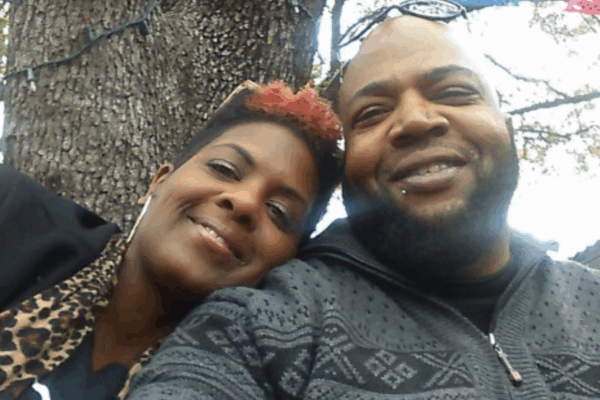Lewis Conway Jr. was just planning a romantic anniversary getaway to San Antonio with his wife earlier last year.
The pair were excited to relive their first trip there as a couple several years earlier, eat at their favorite Tex-Mex restaurant, and spend quality time together. But what was meant to be a stress-free weekend turned into a nightmarish scenario over an amount of CBD marijuana so small it could have fit on top of a dime.
As Lewis recalls, he was standing outside of the couple’s hotel when someone called the police on him. The officers showed up and a tense conversation ensued; half a gram of CBD marijuana was then confiscated from Lewis, something he uses to treat his seizure disorder. It was enough to get Lewis arrested and thrown in jail, though cruelly, the substance was never tested by the police.
Scenes like this over minuscule amounts of marijuana and CBD products are all too common in Texas, especially for Black people like Lewis who are disproportionately targeted for arrests. Don’t believe me? Just take a look at the ACLU’s just-released report on the issue.
A Tale of Two Countries: Racially Targeted Arrests in the Era of Marijuana Reform is a look at the racial disparities that exist with marijuana enforcement across the country. It is a followup to the ACLU’s 2013 report, The War on Marijuana in Black in White, which showed damning evidence of a criminal justice system that targets Black communities for possession of marijuana at much higher rates compared to white communities.
The new report finds that while arrests for marijuana possession have decreased nationally since 2010, the rate of decline has stagnated and, in recent years, has even reversed upward despite popular reform movements.
And in Texas, while there have been some improvements, overall there is a glaring reality of Black communities being disproportionately overpoliced, arrested, and jailed at still shockingly higher rates. This despite the fact that both white and Black communities consume marijuana at about the same rate. While I’ve witnessed people of color getting arrested for marijuana possession before, at conferences in Texas no less, it’s important to see that research backs up anecdotal evidence.
In general, Texas is spending a lot of time and money arresting people for marijuana possession. In fact, our state has the highest total number of marijuana possession arrests in the entire country, with an estimated 70,017 arrests in 2018 alone. This number accounts for nearly half of all drug arrests in Texas, though the overall number has gone down since 2013 for both Black and white people.
The Texas profile page in the new report gives a great summary to the researcher’s findings at both the state and county levels. Right off the bat, we see that while Texas ranks 41st in the country for racial disparities in arrests for marijuana possession, Black people were still 2.6 times more likely than white people to be arrested for possession of it. What’s saddening is that this ratio has gone up since the 2013 report’s initial findings.
And some of the counties that were bad actors in 2013 for racially disproportionate arrests? They continue to be bad actors. For instance, if you ever find yourself traveling through Van Zandt county — which had the worst disparity in the 2013 report — remember that you are still 13.63 times more likely to be arrested for possessing marijuana as a Black person.
While we’ve known there to be a problem with drug enforcement in the country and in Texas for a long time, what’s perhaps more shocking is that we’ve taken so long as a society to try and figure out long-lasting solutions. The big question that remains on the table is: Why are we seemingly complacent with living in communities where there is clear evidence of over policing and arrests of only one type of person?
There are several directions we can move which might alleviate the problems with marijuana enforcement that Texas faces, like marijuana reclassification, decriminalization, or even legalization. In an ideal world, the Texas State Legislature will finally take the issue seriously during their next session in 2021.
Make sure to download, save, and share A Tale of Two Countries: Racially Targeted Arrests in the Era of Marijuana Reform with others in your community.


